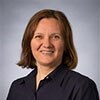Solid Phase Extraction (SPE) has become a popular technique for sample preparation due to its convenience, effectiveness, relatively low solvent usage and versatility. The focus of this webinar is on SPE fundamentals, providing an overview of the available SPE phases as well as tips on how to choose the right phase for selected applications. The webinar will cover SPE method development with a close look at retention mechanisms and the role of pH in sample preparation. In addition, recent Supelco innovations in SPE and methods for current analytes of interest will be presented.
What You Will Learn
- Where to start with SPE method development
- How to choose SPE sorbent for your application
- How the size of your sample dictates the size of the SPE cartridge
- How pH affects the SPE method
- Latest advancements in SPE innovations
Useful Links
Speakers

Olga Shimelis
Supelco Inc
Principal R&D Scientist
Olga Shimelis is a Principal R&D Scientist and a part of the sample preparation group at Supelco working to develop new ex-traction and analysis methodologies using solid phase extraction, liquid and gas chromatography and mass spectrometry. She oversees the work for application of new technologies to areas of food and environmental analysis. In the past years she has been involved in the development of new methods for detection of chemical contaminants and residues in food products and environment as well as the analysis of nutrients and food composition. She made significant contributions to the innovative product lines including molecularly imprinted polymers, Z-Sep sorbents for use in the QuEChERS method and ASSET sampler for measurement of air concentrations of isocyanates. She joined Supelco after completing her post-doctorate work at the Northeastern University’s Barnett Institute of Chemical and Biological Analysis in Boston, USA. Olga got her PhD from the Uni-versity of Oklahoma, USA and Bachelor of Science degree in Analytical Chemistry from the Ural State University, Russia.
Analytical chemistry
- Solid phase extraction
Duration:50min
Language:English
Session 1:presented May 27, 2020
To continue reading please sign in or create an account.
Don't Have An Account?